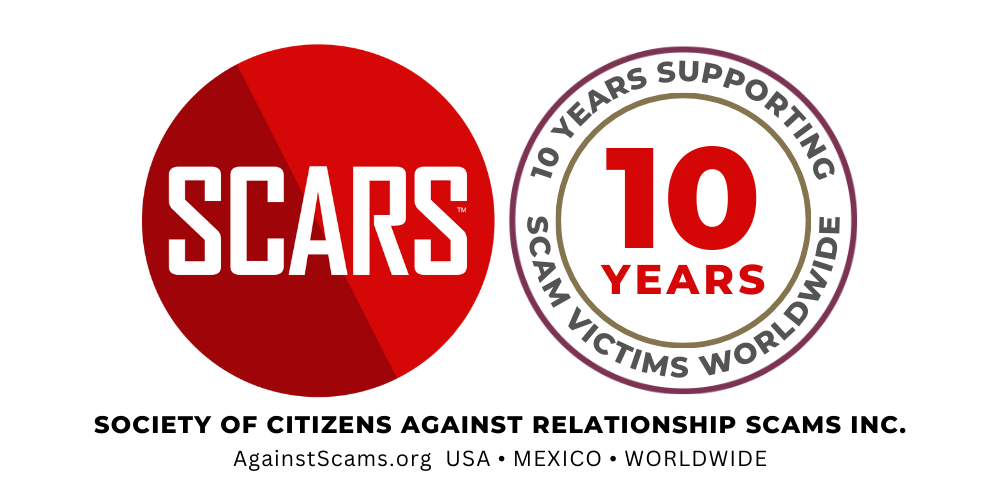
Importance of Trauma Therapy for Scam Victims
An Essential Part of Scam Victim Recovery
What it does for Scam Victims and How to Find It!
Key Topics:
-
Emotional & Psychological Toll of Romance Scams
-
Addressing Vulnerabilities and Resiliency
-
Why Professional Trauma Therapy Matters
-
Finding Trauma Therapy or Counseling
The Critical Role of Professional Trauma Therapy for Victims of Romance Scams – Helping through One-on-One Support
Introduction
Romance scams, a heartbreaking and often overlooked form of cybercrime, can have devastating effects on victims, leaving emotional scars that linger long after the scam has been exposed.
As survivors grapple with the aftermath, getting professional trauma therapy becomes a necessary step toward healing. Doing this as early as possible makes a big difference in recovery.
Understanding the importance of obtaining specialized care and support for victims of romance or relationship scams can be the difference between coming through recovery well or developing more psychological issues.
Emotional & Psychological Toll of Romance Scams
Romance scams involve emotional manipulation, betrayal, and financial loss, leaving victims in a state of profound distress. The psychological impact can manifest in a range of symptoms, including anxiety, depression, post-traumatic stress disorder (PTSD), guilt, shame, and a shattered sense of trust.
Romance scams are perpetrated by skilled criminal manipulators who exploit emotions for financial gain while exacting a heavy emotional and psychological toll on victims. Understanding the depth of these wounds is essential to grasp why seeking professional trauma therapy is not just advisable but critical for the healing journey.
- Betrayal and Deception: Victims of romance scams experience a profound sense of betrayal and deception. The person they believed to be a romantic partner turns out to be a fraud, shattering not only their dreams of love but also their trust in their own judgment and intuition.
- Loss of Trust: Trust is a fundamental aspect of any relationship. Romance scams undermine this foundation, leaving victims questioning not only future relationships but also their ability to discern genuine intentions. Rebuilding trust becomes a central challenge in their emotional recovery.
- Guilt and Shame: Victims often grapple with overwhelming feelings of guilt and shame. They blame themselves for falling for the scam, internalizing a sense of personal failure. Professional trauma therapy helps victims recognize that they were deliberately targeted by skilled manipulators and alleviates the burden of self-blame.
- Isolation and Stigmatization: Many victims, fearing judgment or disbelief, choose to suffer in silence. The isolation resulting from the stigma associated with falling victim to a scam exacerbates the psychological impact. Trauma therapy provides a safe and non-judgmental space for victims to share their experiences.
- Financial Devastation: Beyond the emotional turmoil, romance scams often lead to significant financial loss. Victims may lose their life savings, homes, or incur substantial debts. The financial devastation amplifies stress and anxiety, contributing to the overall emotional toll.
- Post-Traumatic Stress Disorder (PTSD): The aftermath of romance scams can trigger symptoms associated with PTSD, such as flashbacks, nightmares, hypervigilance, and emotional numbness. Trauma therapists are adept at addressing these symptoms and guiding individuals toward post-traumatic growth.
- Impact on Future Relationships: The scars left by romance scams influence victims’ perspectives on future relationships. Fear of vulnerability, trust issues, and emotional scars may hinder the ability to engage in healthy connections. Trauma therapy assists in untangling these emotional knots, fostering resilience and openness to new relationships.
- Identity Crisis: The manipulation in romance scams can lead to an identity crisis for victims. The fabricated persona created by scammers, combined with the revelation of the deception, leaves victims questioning their own sense of self. Trauma therapy aids in reconstructing a positive and authentic self-image.
Understanding the multifaceted emotional and psychological toll of romance scams emphasizes the need for compassionate and specialized care. Professional trauma therapy serves as a beacon of hope, guiding victims from the shadows of despair toward a path of healing, resilience, and renewed emotional well-being.
Addressing Vulnerabilities and Resiliency
Trauma therapy plays a pivotal role in addressing vulnerabilities and cultivating resilience in individuals who have fallen victim to scams. Understanding and acknowledging these vulnerabilities is a crucial step toward empowering survivors to rebuild their lives. Here’s how trauma therapy contributes to this process:
- Identifying and Understanding Vulnerabilities: Trauma therapists work collaboratively with scam victims to identify and comprehend the vulnerabilities that scammers exploit. Whether rooted in past traumas, loneliness, or a genuine desire for connection, recognizing these vulnerabilities is essential for tailored therapeutic interventions.
- Deconstructing Manipulation Techniques: Scammers are adept at exploiting emotional vulnerabilities through manipulation techniques. Trauma therapy involves deconstructing these tactics and helping victims understand the psychological mechanisms used against them. This awareness is empowering, as it dismantles the illusion created by scammers.
- Building Emotional Regulation Skills: Victims often experience heightened emotional distress and instability. Trauma therapy equips individuals with practical emotional regulation skills, enabling them to navigate intense emotions, manage triggers, and regain a sense of emotional balance.
- Strengthening Coping Mechanisms: Scam victims may find their usual coping mechanisms ineffective in the aftermath of the betrayal. Trauma therapy introduces adaptive coping strategies tailored to the individual’s needs, promoting healthier ways to manage stress, anxiety, and the challenges of recovery.
- Addressing Shame and Self-Blame: Vulnerabilities exploited by scammers are often intertwined with feelings of shame and self-blame. Trauma therapists create a non-judgmental space for victims to explore and address these emotions. By dismantling self-blame, individuals can redirect their focus toward healing and resilience.
- Cultivating Self-Compassion: Trauma therapy encourages the development of self-compassion, a crucial element in building resilience. Victims learn to treat themselves with kindness and understanding, fostering a positive internal dialogue that counteracts the negative narratives imposed by scammers.
- Establishing Boundaries and Assertiveness: Scam victims may struggle with asserting boundaries, contributing to their susceptibility. Trauma therapy empowers individuals to establish and maintain healthy boundaries, fostering a sense of self-empowerment and reducing the risk of future victimization.
- Encouraging Post-Traumatic Growth: Trauma therapy goes beyond addressing vulnerabilities; it aims to facilitate post-traumatic growth. By guiding individuals through the process of reconstructing their lives, setting new goals, and envisioning a positive future, therapists support survivors in embracing resilience as a transformative force.
In essence, trauma therapy becomes a cornerstone for scam victims, offering a tailored and compassionate approach to addressing vulnerabilities and fostering resilience. By recognizing the unique needs of each individual, therapists play a vital role in guiding survivors toward a path of healing, strength, and renewed psychological well-being.
Why Professional Trauma Therapy Matters
- Specialized Expertise: Trauma therapists are trained to address the unique challenges faced by victims of scams. Their specialized knowledge allows them to navigate the complexities of emotional trauma stemming from betrayal, deception, and financial exploitation.
- Validation and Empathy: Victims often blame themselves for falling prey to scams. Trauma therapists provide a safe space for victims to share their experiences without judgment. Through validation and empathy, therapists help survivors recognize that they were targeted by skilled manipulators.
- Coping Strategies: Trauma therapy equips individuals with effective coping mechanisms to manage overwhelming emotions. Therapists guide victims in developing resilience, emotional regulation, and self-compassion, empowering them to rebuild their lives.
- Rebuilding Trust: Scams erode trust not only in romantic relationships but also in personal judgment. Trauma therapy aids in rebuilding a victim’s ability to trust themselves and others, fostering healthier connections in the future.
- Financial Recovery: Victims often face financial ruin in the wake of romance scams. Therapists collaborate with individuals to address the practical aspects of financial recovery, helping them navigate the legal and financial implications while minimizing feelings of helplessness.
- Preventing Further Victimization: Trauma therapists work with survivors to identify patterns of vulnerability that scammers exploit. By understanding these vulnerabilities, victims can develop strategies to protect themselves from future victimization.
- Community Support: Group therapy or support groups provide a sense of community for survivors. Sharing experiences with others who have faced similar challenges can be a powerful aspect of the healing process.
Finding Trauma Therapy or Counseling
SCARS recommends that every scam victim obtain trauma counseling or therapy to help them effectively recover from these crimes. There is no shame in asking and accepting help, the only shame is in not getting help when you need it.
You can find a counselor or therapist in our directories at counseling.AgainstScams.org
Remember
The aftermath of romance scams is a complex emotional landscape that demands specialized care. Professional trauma therapy offers victims the tools to overcome the profound impact of betrayal, rebuild their lives, and emerge stronger. By seeking help, survivors can reclaim their emotional well-being and embark on a journey towards recovery.
Getting Help – Therapy & Therapists
Therapy and therapists play a crucial role in helping scam victims recover from the emotional and psychological impact of their experiences. They provide a safe space for victims to process their trauma, rebuild trust, and develop coping strategies. Through guided support, therapists help victims regain their self-esteem, navigate complex emotions, and reestablish a sense of security, enabling them to move forward with their lives.
SCARS Support & Recovery
- If you are a victim of scams, go to www.ScamVictimsSupport.org for real knowledge and help
- Enroll in SCARS Scam Survivor’s School now at www.SCARSeducation.org
- To report criminals, visit https://reporting.AgainstScams.org – we will NEVER give your data to money recovery companies like some do!
- Follow us and find our podcasts, webinars, and helpful videos on YouTube: https://www.youtube.com/@RomancescamsNowcom
- Learn about the Psychology of Scams at www.ScamPsychology.org
- Dig deeper into the reality of scams, fraud, and cybercrime at www.ScamsNOW.com and www.RomanceScamsNOW.com
- Scam Survivor’s Stories: www.ScamSurvivorStories.org
- For Scam Victim Advocates visit www.ScamVictimsAdvocates.org
- See more scammer photos on www.ScammerPhotos.com
Important Things For Scam Victims To Know
- Importance Of Starting Off Right For New Scam Victims
- Importance Of Journaling For New Scam Victims
- Importance For Scam Victims Of Support & Recovery Group
- Importance Of Learning For Scam Victims Recovering
- Importance Of Trauma Therapy For Scam Victims
- Importance Of Scam Victims Avoiding The Vigilante Trap
- SCARS 3 Steps For New Scam Victims
- Every New Scam Victim Needs To Understand What To Do Next!
- Scam Victims Reporting Scams And Interacting With The Police
- Essential Information for New Scam Victims on SCARS RomanceScamsNOW.com
- Learn More on SCARS ScamsNOW.com




















![niprc[1]](https://scamvictimssupport.org/wp-content/uploads/2024/01/niprc1.png)
Definitely Trauma Therapy is essential TO RECOVER FROM THE TRAUMA OF BEING DECEIVED on. romance scam. The change can be expected as soon as 4-6 sessions of therapy, in my experience.
When I think about my trauma, nothing can “un-do” the experience that I endured, I’ve learned to accept that it happened. However I can use it as an opportunity to learn from it and find a way to heal so that I can thrive and rewrite my story. I owe it to myself a chance to work hard and heal. With SCARS Institute’s help, I am getting the help I needed through therapy so that I can heal properly.
I am not ashamed to say that I have located a wonderful trauma therapist who does not allow me to to skirt the issues and face the truth of my experience. She validates, she gives me credit when it is due and she keeps working with me to understand that what happened to me in my early life does not need to be worn like an old shirt day after day without change. She is helping me to shed this shirt and the one from the trauma of spousal abuse as a young wife and mother. Both of these shirts are disappearing, I am beginning to see that those experiences happened to me, I didn’t cause them. And she is doing the same with the shirt I put on after my crime as well. I have internalized so many things done to me by others making them MY responsibility. That I did them and in doing so I relieved those that committed these acts against me of any blame or responsibility. Those old shirts are ragged, dirty, filthy with constant use and serve no purpose in who I am now. They will no longer define me. The new shirt I put on after my scam will be ripped away so I can face life with the right coping mechanisms, without shame or guilt, acknowledging the crime happened to me, it was not my fault. It was not me. I was exploited for my empathy, compassion and understanding my need to be helpful and useful. Those were my virtues that made me appealing to the criminals.
This article fully expresses the psychological and emotional toll the scam had on me. I experienced each of the “symptoms” outlined above.
I know the trauma I’ve experienced won’t be cured or go away, but I’m learning to heal, in small steps, and to accept what I’ve gone through as NOT MY FAULT, but was at the hands of skilled criminals who masterfully manipulated me. Trauma therapy is a must for the healing to continue with the goal of full recovery.
Thank you SCARS for validating the trauma, explaining what needs to be addressed and why it’s so important to your recovery to do so.